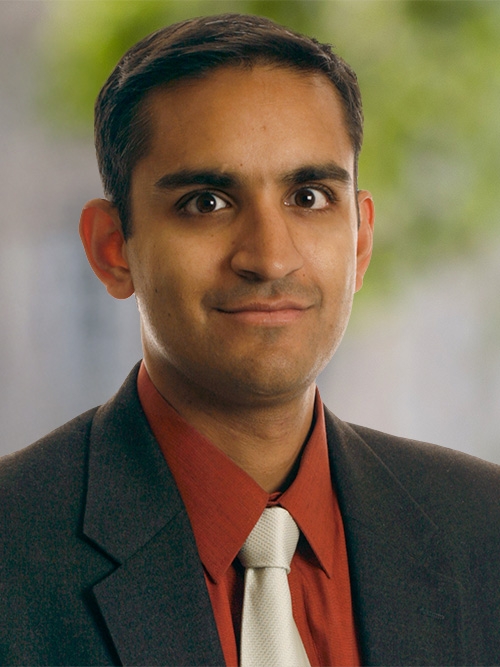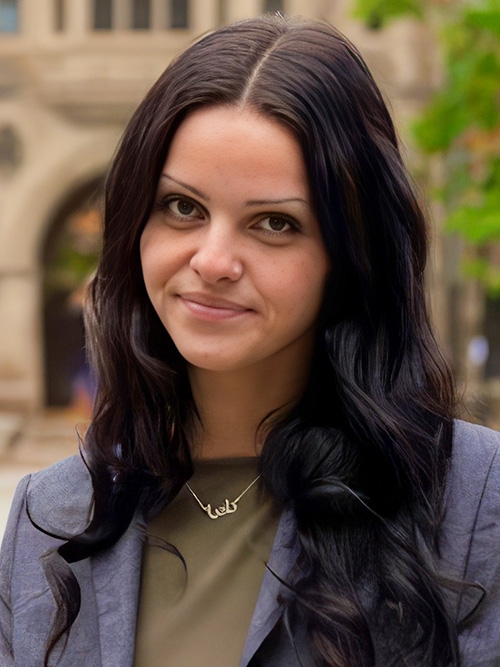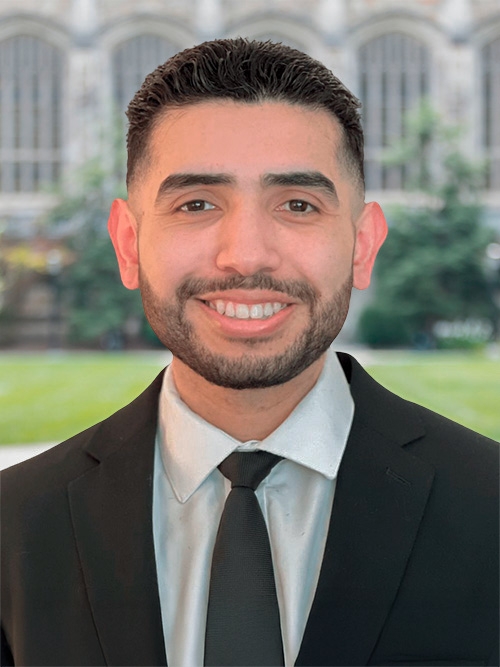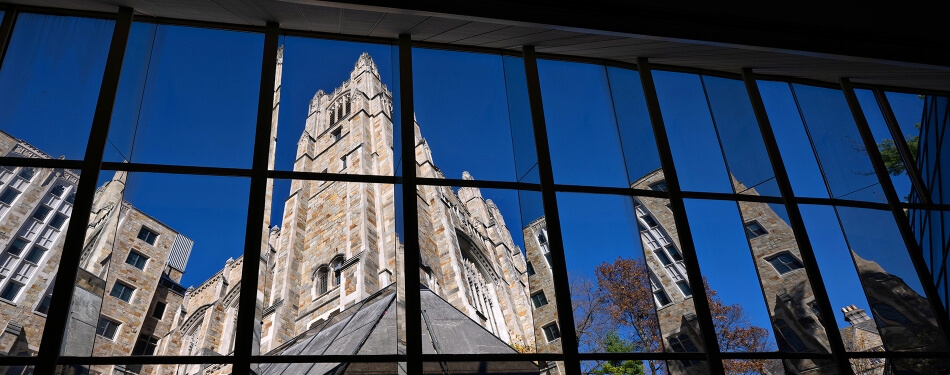Two students in Michigan Law’s Child Welfare Appellate Clinic won a major case in the Michigan Court of Appeals that restored the parental rights of a clinic client. The opinion in In re Boshell/Shelton, Minors, published July 2, stated that the Michigan Department of Health and Human Services (DHHS) should not have been involved in the life of the client and her children and that the termination of her parental rights was inappropriate.

While helping secure justice for the mother, the clinic also provided a learning opportunity for rising 3Ls Augie DeLuna and Nadia Fassa. They worked during the 2024–2025 academic year to develop an argument on behalf of the mother, who was caught up in a case involving the tragic death of a child who was neither related to her nor under her care.
Vivek Sankaran, ’01, clinical professor of law and director of the Child Welfare Appellate Clinic, guided DeLuna and Fassa’s work and praised them following the court’s opinion.
“They had done such a great job on their brief that it was a very obvious decision for this court,” he said.
Tearing a family apart
The clinic’s client, “Ms. C.,” is the mother of six. She shares three daughters with her former partner, identified as S. Shelton in the court opinion. One daughter lived with Shelton, while the two others lived with Ms. C. and sometimes visited Shelton. Ms. C. also has three sons with her current partner, identified as Z. Boshell. Her sons bore no relation to S. Shelton.

When Shelton was charged with the torture and murder of his current partner’s son, the DHHS sought custody of all of Ms. C.’s children, even though she was only tangentially associated with Shelton’s case. DHHS alleged that she should have known about the boy’s abuse because her two daughters visited their father at his house.
Her three daughters were placed with their grandmother while her sons were released to Boshell on the condition that their mother leave the house. Ms. C. eventually moved into a motel.
Following a trial, the trial court took jurisdiction over all six of the children, mainly due to the trial court’s finding of her “neglectfulness” because she didn’t know the circumstances surrounding the abuse of the little boy. The court also terminated her parental rights.
“They were trying to make sure that they covered all their bases,” said Fassa. “But what they ended up doing is tearing apart a family that had nothing to do with it.”
Favorable decision

The case was one of six that the Wayne County Circuit Court assigned to the clinic in fall 2024. Sankaran then assigned the case to DeLuna and Fassa.
While appellate lawyers have less client interaction than trial lawyers, the students met with Ms. C., who was considering dropping the appeal because of the trauma she and her children had suffered. When the students let her know she had a strong case, she decided to proceed.
As they worked on the case, DeLuna and Fassa met weekly with fellow student-attorneys in the clinic and with Sankaran, a process that provided consistent feedback as they developed their brief. They also received feedback on their writing from Timothy Pinto, ’97, clinical professor of law.
“Those meetings were a great way to communicate our concerns or talk through the legal issues that we were unsure about,” said DeLuna.
They filed the brief at the end of the fall term. When the case came before the appeals court on July 1, Sankaran made the oral argument because DeLuna and Fassa were away at their summer jobs.
“To my surprise, they didn’t even ask a question,” said Sankaran, “because they knew what they were going to do.”
One day later, the court issued its opinion.
“It was surreal that we won on all four of our arguments,” said DeLuna. “We would have been happy to win on just one, let alone all four.”
Not only did the court quickly make its decision, it also issued a published opinion, which establishes a binding precedent that can help families experiencing similar situations in the future.
Trust in her advocates
Once Fassa learned of the decision, she contacted her client, who was overjoyed to know she would regain her parental rights.
“I’ve been talking with her a bit since then, and I thanked her for putting so much trust in us,” said Fassa. “She was like, ‘No, thank you guys. I really wouldn’t have done this if it wasn’t for you; I would have dropped it.’”
Both students took away from the experience the importance of client-centered lawyering. While it’s easy to get caught up in the process of a case, it’s necessary to remember that real people are involved.
As fall approaches, the clinic will receive a whole new set of cases from the court. While it is the only clinic in the country that represents parents on appeal in termination of parental rights cases, Sankaran would like to see similar clinics at other law schools.
“It is another example of Michigan leading in this area,” said Sankaran. “I’m hoping that others will follow our lead and create more of these clinics, because in the appellate world we have a lot of work to do; a lot of mistakes are happening. These families need advocates to help them through that process.”

